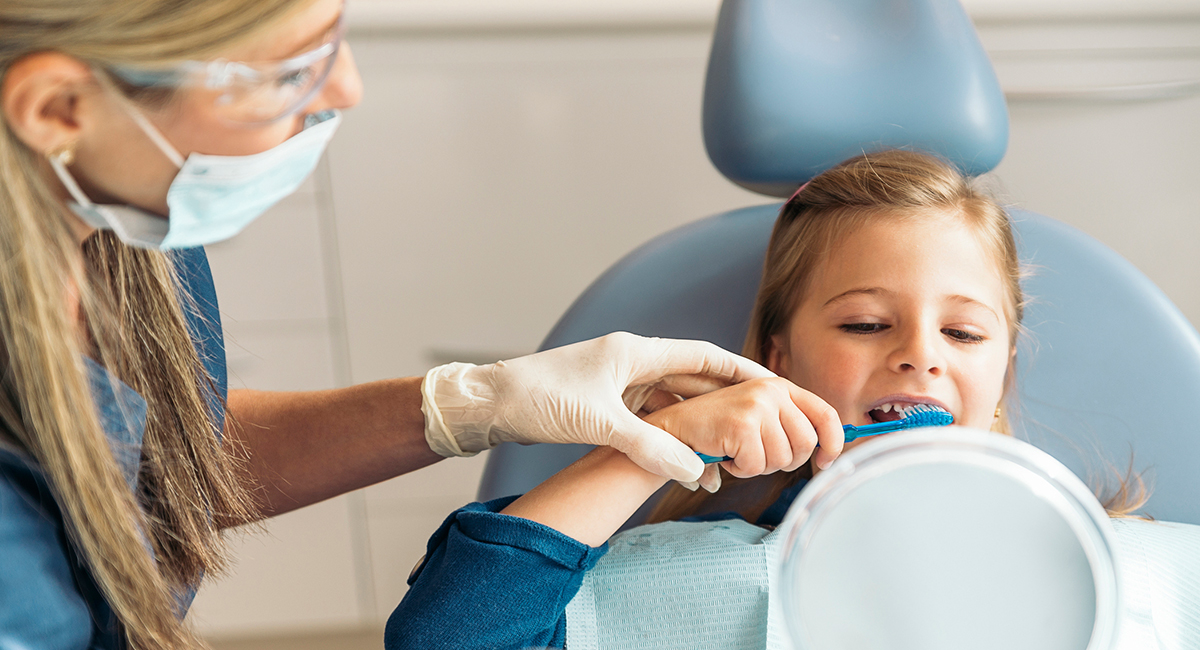Early Dental Care

First Visit
According to the American Dental Association and the American Academy of Pediatric Dentistry, a child’s first dental check-up should occur between the ages of 6 months to one year, but seeing a dentist at any age can benefit your child's oral health.
During your child’s first visit, we will review your child's medical/dental health history with you, and your child will meet the dentist and have everything explained to him/her. Following a thorough examination of the teeth and gums, we will review oral hygiene instructions and demonstrate proper brushing techniques. If no treatment is needed and your child is comfortable, we will clean their teeth and administer a fluoride treatment.
We look forward to meeting you and your child!
Importance and Care of Primary Teeth (Baby Teeth)
Baby teeth, also called primary teeth, are shed, but they are still essential for many reasons. Children need strong, healthy baby teeth to chew food properly, pronounce words correctly, and maintain space in the jaw for permanent teeth. That is why it is important to take good care of the primary teeth by keeping them clean and healthy.
Even before the first tooth erupts, your child’s gums should be wiped gently with a wet cloth or gauze after every feeding. At the appearance of the first tooth, begin brushing your child’s teeth with water. Parents should supervise children over the age of two during brushing to ensure that they only use a pea-sized amount of fluoride toothpaste but do not swallow it, and they rinse with water afterward.
Preventing Decay
Primary teeth, if not kept clean and healthy, can develop decay. This decay can lead to infection, which can damage permanent teeth. Tooth decay in infants and young children occurs when the teeth undergo frequent and extended exposure to liquids containing sugar. To keep your child’s teeth cavity free and avoid oral pain, do not allow your child to fall asleep with a bottle containing anything other than water. When given to a child right before they fall asleep, milk, formula, and juice can remain on the teeth and in the mouth and cause tooth decay. If your child needs a pacifier between feedings or at bedtime, give them a clean pacifier. Do not give your child a pacifier dipped in honey or sugar.
